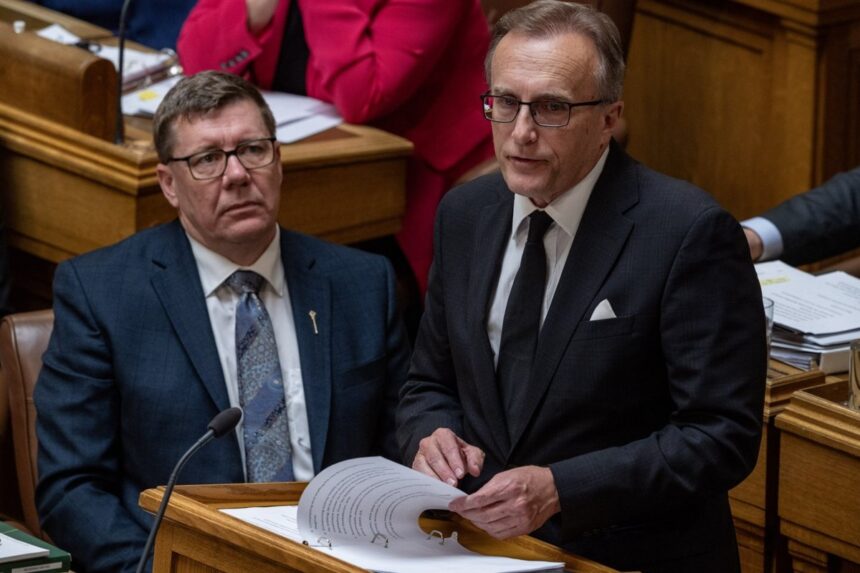In a dramatic fiscal reversal that has sent ripples through Saskatchewan’s political landscape, the province’s once-promising $12 million surplus projection has plummeted to a substantial $349 million deficit. This stark financial pivot, revealed in the latest budget update from Finance Minister Donna Harpauer, underscores the volatile economic conditions facing Canada’s resource-dependent provinces.
The considerable shortfall emerges primarily from lower potash royalties, which fell a staggering $566 million below initial forecasts. This decline reflects global market pressures and shifting demand patterns that have significantly impacted Saskatchewan’s resource revenue streams.
“The budget deficit represents the reality of commodity markets,” Harpauer explained during her presentation at the Legislative Building in Regina. “While our provincial economy remains fundamentally strong, these external pressures require fiscal prudence and strategic planning to navigate effectively.”
The financial recalibration comes despite positive indicators in other sectors. Provincial GDP growth is now projected at 1.4 percent, marginally higher than the 1.3 percent forecast in the spring budget. Total revenue projections have increased by $18 million compared to budget day figures, reaching $19.3 billion.
However, expenditures have simultaneously grown by $378 million, hitting $19.6 billion. This spending increase includes additional allocations for healthcare, education, and critical infrastructure maintenance—sectors that Saskatchewan residents have identified as priorities in recent polling.
Opposition critics have seized on the deficit announcement as evidence of financial mismanagement. NDP Finance Critic Trent Wotherspoon characterized the swing as “deeply concerning” and questioned the government’s economic stewardship.
“When you move from projecting a surplus to acknowledging a $349 million deficit in less than a year, it raises serious questions about financial planning and oversight,” Wotherspoon said. “Saskatchewan families deserve stability and transparency in their government’s fiscal approach.”
Industry analysts note that while the potash revenue decline was particularly severe, Saskatchewan continues to face broader challenges common to resource-dependent economies. The province’s economic diversification efforts have shown promise but remain vulnerable to global commodity fluctuations.
Saskatchewan’s fiscal recalibration mirrors similar challenges across Canada’s provincial landscape, where resource revenues often create boom-and-bust budget cycles. Alberta and Newfoundland have experienced comparable volatility in recent years, though Saskatchewan’s swing is notable for its rapidity.
The deficit announcement arrives at a politically sensitive moment, with Premier Scott Moe’s government approaching the halfway point of its current mandate. Political observers suggest that how the government manages this fiscal challenge could significantly influence its electoral prospects in 2024.
Minister Harpauer emphasized that despite the deficit, Saskatchewan maintains one of Canada’s strongest credit ratings and comparatively low debt-to-GDP ratios. The province has also committed to returning to balanced budgets by fiscal year 2026-27.
As Saskatchewan navigates these economic headwinds, the fundamental question emerges: can the province develop more effective mechanisms to cushion against commodity price volatility, or will its budget projections continue to ride the unpredictable waves of global resource markets?























